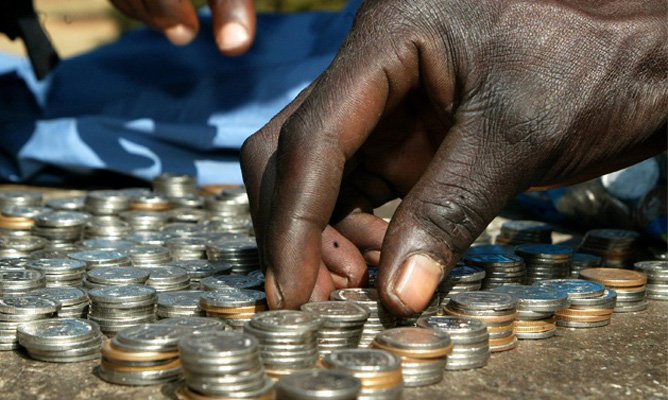Source: Let the bond float, govt told – The Standard September 30, 2018
GOVERNMENT should not peg the exchange rate of the bond note, allowing it to float freely within the multi-currency system as a first step towards the introduction of a proper local currency, a local economist has said.
BY MTHANDAZO NYONIThe controversial bond notes, which were introduced in 2016 as the government sought to ease a critical shortage of bank notes, are pegged at 1:1 with the US dollar although their value is 60% lower on the parallel market.
Addressing delegates at the just-ended Confederation of Zimbabwe Industries annual congress in Bulawayo, University of Zimbabwe economics professor and former government advisor Ashok Chakravarti said the bond note was a surrogate local currency and not an alternate to the US dollar.
“It (bond note) is over 50% of currency in circulation,” he said.
“The peg between the bond note and US dollar should be removed and it should be allowed to float freely within the multi-currency system.
“This will be first stepping stone towards the introduction of a proper local currency. (Also) the bond notes released should be limited to $500 million.”
Chakravarti said 50% of forex earned by exporters (65% by the mining sector) should be surrendered to the central bank for essential imports such as fuel, power, wheat, cooking oil and so forth.
“This will control inflation,” he said.
The balance of 50% should be liberalised so that exporters or diasporans could freely sell their forex at market-determined exchange rates.
He also proposed that new foreign currency accounts (FCAs) should be created where real US dollars could be deposited and withdrawn freely.
He said a legal instrument indicating that this was private property and could not be taken by the state should be enacted.
He also called for a swap of real-time gross settlement (RTGS) deposits for long-term bond which extinguishes treasury bills (TBs) and overdraft.
With this, the balance sheet of financial system would shrink and improve, he said.
Chakravarti said if such proposals were implemented, bond notes would circulate within Zimbabwe and improve the cash situation while new foreign investors would know that the value of their investment was guaranteed through FCAs.
“More US dollars will come into the market and improve the cash and forex situation,” he said.
“Industrial competitiveness will improve due to depreciation of RTGS and increased earnings from exports. Exports will be boosted and imports discouraged.”
Chakravarti said inflation would be kept under control because prices of essential items are controlled and such importers would continue to get forex at 1:1
“The Zimbabwe Revenue Authority will gain significant additional revenue from revaluation of imported goods at a higher exchange rate,” Chakravarti said.However, some delegates said the proposals were not reflective of the situation on the ground and called on the government to consult businesses on monetary issues.
Reserve Bank of Zimbabwe deputy governor Jesimen Chipika said currency reforms should be done gradually to avoid sliding back to the 2008 scenario.“He (Chakravarti) talked about the conditions. These are the conditions, a high and sustainable GDP growth, foreign reserves of about three months import cover and we are looking at about $1 billion of import cover should be in the central bank. Otherwise if we quickly introduce a local currency, we will go back to 2008 and we don’t want that,” she said.
Agribank head of strategy and marketing Joseph Mverecha said while he agreed with the proposals by Chakravarti, government should first secure a foreign exchange package to cover its wage bill for about three months.
Newer Post
JSC deploys 57 magistrates Older Post
Homosexuality and criminality 
COMMENTS